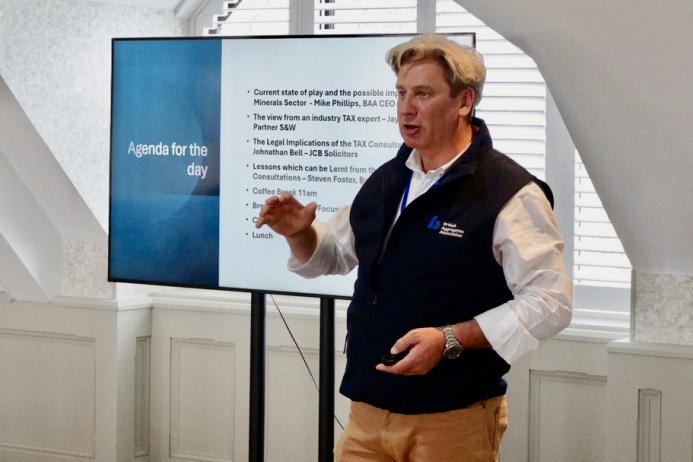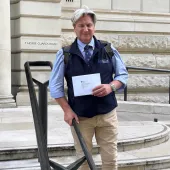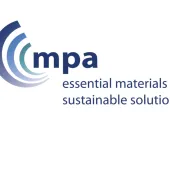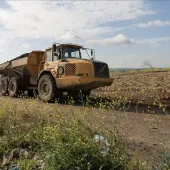Call to action on Landfill Tax consultation
A crucial moment for the minerals industry and the circular economy, says British Aggregates Association
THE current HM Treasury consultation on Landfill Tax, which commenced on 28 April 2025, may appear to be a technical policy review, but for those working in mineral extraction, reprocessing, and construction, it is a turning point with real consequences for operations, costs, and the UK’s broader sustainability ambitions, says the British Aggregates Association (BAA).
As professionals working with primary and secondary aggregates, the BAA says its members have a deeper understanding of the complex lifecycle of construction materials than most. Every tonne extracted, processed, reused, or disposed of plays a role in the supply chain that supports all parts of UK homes, roads, schools, and infrastructure. According to the BAA, this consultation proposes changes that could inadvertently disrupt that chain for the long term.
If implemented without a thorough understanding of the potential outcomes, the association believes the proposed tax reforms could result in substantial cost increases for managing materials, including those that are by-products of legitimate and often environmentally beneficial recycling or mineral operations. These increased costs risk driving up prices across the construction sector, including in areas already under intense affordability pressures such as house building and infrastructure delivery.
Worse still, this added financial pressure could tip waste producers toward illegal or unregulated routes. A spike in fly-tipping and the use of non-compliant disposal sites is a genuine threat, not just to the environment, but to the reputation of the minerals industry and the enforcement capacity of public agencies.
Mineral sites are also bound by long-standing planning conditions that require the import of inert materials for safe and beneficial restoration. These are not just environmental obligations, they are legal responsibilities that return worked land to community, conservation, or agricultural use.
Increasingly, these restoration schemes are being designed to meet Biodiversity Net Gain (BNG) requirements, as mandated by national planning frameworks and regulators. Achieving BNG typically involves significant regrading, capping, and profiling work, all of which rely on access to clean, inert materials. By imposing a single rate of landfill tax on all such materials, regardless of their end use, the Government risks making BNG delivery prohibitively expensive or, in some cases, practically unachievable.
This would be a significant counterproductive outcome, undermining not only the credibility of environmental regulation, but also the ability of the minerals sector to contribute positively to landscape and habitat enhancement across the UK.
The British Aggregates Association is playing a leading role in representing the sector’s voice in this consultation. Most recently, the association hosted a dedicated conference that brought together more than 50 professionals from across the mineral supply chain, including producers, manufacturers of specialized plant and machinery, planning and permitting experts, and end-users.

This forum provided a vital opportunity to share perspectives, voice concerns, and ensure that real-world experience is reflected in BAA’s response to the Government. The message from the event was clear – that whilst there is strong industry support for environmental responsibility, it must be underpinned by policy that is practical, proportionate, and encourages the use of secondary and recycled materials, and not penalises it.
Mike Phillips, chief executive officer of the British Aggregates Association, commented: ‘This review will have a significant impact not only on our vital sector, but on everyone who uses minerals in one form or another. I fully recognize the importance of recycling, reusing, and repurposing materials, which is essential to a modern, sustainable, and environmentally responsible economy. But I urge the Government to truly listen to the needs of our industry. By all means, impose higher fines and heavily penalise unlawful activities, but responsible, lawful operators must not be punished for doing the right thing. We need a system that supports good practice, not one that undermines it.’

The circular economy is not just a slogan; it is a principle many in the minerals industry are actively enabling through investment in reprocessing plant and machinery to enable diversion from landfill, and the development of secondary aggregates. Construction and demolition materials are being transformed into high-value products for reuse.
It is in no one’s best interest to send recoverable, usable materials to landfill, says the BAA, as this benefits neither the environment nor the economy. The Government and HM Treasury must recognize this and ensure that fiscal policy acts as an enabler of responsible material recovery and not as a barrier. By penalising material reuse or failing to distinguish between waste and resource, the current proposals risk setting things back at a time when momentum is building toward more sustainable, lower-carbon construction practices.
The danger is that an overly rigid tax regime could punish exactly the kind of innovation and environmental responsibility that government policy claims to support.
The British Aggregates Association is, therefore, urging all professionals involved in mineral extraction, construction, and materials management to engage with this consultation before it closes. Whether an operator, contractor, consultant, or supplier, everyone’s voice matters, says the association. The Government needs to understand the operational realities and avoid policy decisions that could undermine environmental goals and commercial viability.
Those in planning and policy roles are also encouraged to consider the importance of materials to legal restoration obligations and BNG delivery, as well as the essential role of secondary materials in building a sustainable and affordable future.
The consultation is open until 21 July 2025, and responses can be submitted via the HM Treasury website. It does not take long to do, and the BAA is available to help in compiling responses whose outcomes will shape the minerals industry for years to come – outcomes that are informed by the people who know the industry best.
For further information, contact Mike Phillips at: mphillips@british-aggregates.comaggregates.com










